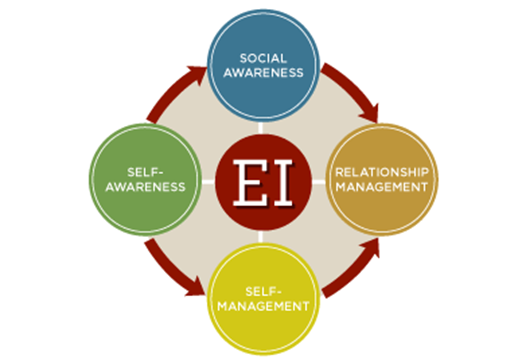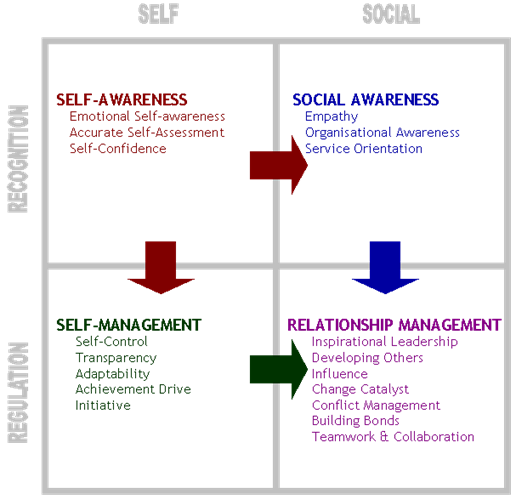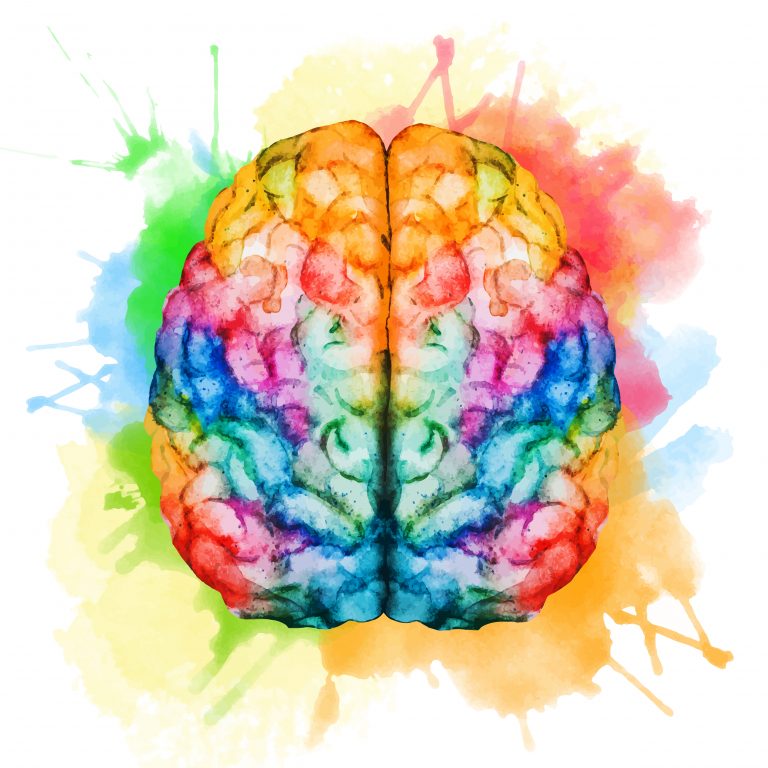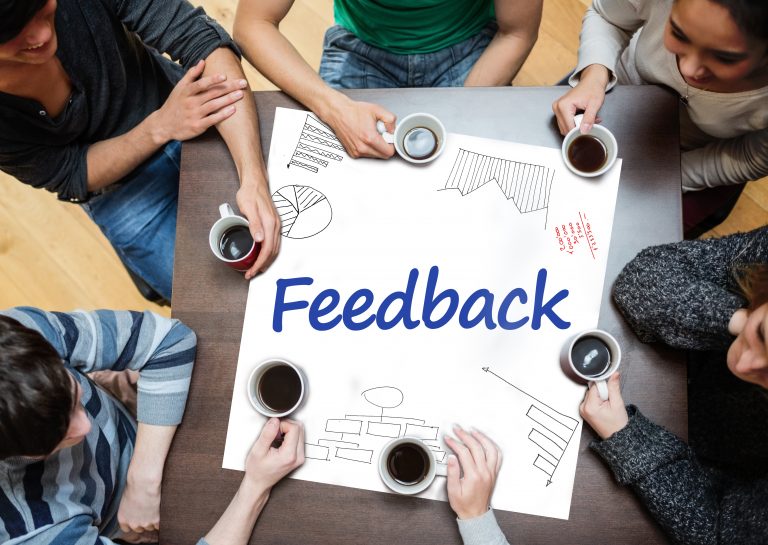Emotional Intelligent Leadership – what is it and why develop EI?
“Emotional intelligence (EI) is the ability to understand and manage your own emotions, and those of the people around you. People with a high degree of emotional intelligence know what they’re feeling, what their emotions mean, and how these emotions impact upon others” Daniel Goleman – American psychologist
IQ vs EQ
Expertise, professional skill and subject matter competence is often what gets leaders promoted. However, IQ (intelligence quotient) is not ‘the difference that makes the difference’ It is EQ (Emotional quotient – otherwise known as EI). The higher a leader’s emotional intelligence, the greater their relationships and engagement and therefore the higher the chances of their people, teams and stakeholders achieving high performing results. So, what is EI?
If we think about a leader that has had a positive impact, it is probably not the leader who had all the answers, who became demanding and unreasonable when under pressure. It is the leader who inspired, who we trusted and for whom we would give that bit more. Because they trusted, respected and listened to us and coached and shared their knowledge and experience, because they had high EI.
Why develop EI?
A massive increase in digital and global connectivity put screens, culture and time differences between us. This is not a barrier to relationships, connection and communication, it is an opportunity. It brings a need for organisations to deploy people strategies that focus on trust, respect, networking and robust relationships. Leaders must make the time and create the space for conversation, encouragement and engagement and use tools, techniques and creativity to allow for dialogue, shared experiences and collaboration. Those leaders that do this well, have a high EI.
Emotionally Intelligent Leaders – Organisations that develop their leadership EI, create the organisational core conditions that put people at its forefront. They know that their people are an asset, and they don’t ‘sweat their asset’ they ‘develop and encourage’. Providing compassion, support, and feedback, they focus on people’s strengths and ability. The leadership goal is to coach, develop and encourage the workforce by inspiring, engaging, connecting and communicating a vision with passion. The priority is to communicate and lead people through change by providing clear goals and purpose and allowing autonomy. They encourage creativity and innovation and ensure collaborative high-performance outcomes and results. Leaders with high EI:
- Make it ‘ok’ to make mistakes because they know this is how employees and teams learn and grow
- ‘Catch’ people doing things right and then encourage them to do more of the ‘right things’
Emotional Intelligence – The Model and a framework
According to Daniel Goleman, there are four key elements:

1: Self-Awareness:
Self-Awareness – to understand ourselves more deeply and in two ways:
- Intra-personally – Our inner feelings – our inner conversations with ourselves
- Inter-personally – How we relate to others, the conversations and our behaviour with others
Leaders must strive to become self-aware and bring their behaviours into consciousness so they ‘be themselves with skill’. Becoming self-aware is about the process of understanding:
- Why we experience the emotions that we experience?
- What are our triggers?
- Which of these emotional responses (and how they make us feel) are useful and which might not be?
It is about recognising emotions, understanding the feelings associated with the emotion, and understanding what we think and do as a result.
Self-Regulating:
- Leaders should aim to regulate their responses to situations and people by choosing an approach and not by showing irritation, having angry outbursts or responding with intolerance and loss of control.
- They do not lose their temper or respond by attacking verbally ‘in the moment
They take time to manage their impulse, reflect on the reasons for their strong emotions and respond in a way that does not compromise their values and or intimidate the other
2: Social-Awareness:
Socially aware leaders have a sense of social and organisational structure and recognise the need for strong relationships, knowing how to work effectively within the construct. Their empathic skills enable them to understand the needs of their people, stakeholders and teams and so be able to inspire and motivate. They relate and engage, are curious and actively listen resolving conflict effectively. They manoeuvre around difficult situations effectively and do so diplomatically, so to inspire and motivate for action. They:
- Are curious, use great questioning and listening skills and know how to dialogue with others and will encourage ‘straight talking’ and innovation
- Coach, develop and give feedback both positive and negative.
- Know how to resolve conflicts and increase people’s understanding of one another
- They observe and listen to the said and the unsaid – they develop sensory acuity – the use of senses to make accurate observations about other people.
3: Relationship Management
Relationship management is more than having lots of good relationships. It is about intentional relationships and networks that are underpinned by trust and respect. Leaders of great relationships focus on the strengths of others and encourage a positive mindset. They actively build their network and encourage collaboration. They:
- Develop trust and respect and hold confidentiality, they know that respect is trust in action.
- Focus on win-wins by giving and giving and not just taking, actively helping others and genuinely wanting to do it.
- Make themselves available as a colleague, a mentor and a coach
- They use a combination of the elements of EI to flex their behaviour to create win-wins and great relationships
4: Self-Management
Self-management requires ongoing self-reflection and an openness to feedback. Admitting mistakes, adapting plans and changing direction is necessary in today’s uncertain times and courageous leaders are adaptable and influence direction and outcome. Regulating themselves as they apply pressure for performance, they stay fair and make themselves accountable, especially when facing difficult situations. It is not about blaming others when it goes wrong, it is about earning respect by staying resilient when under pressure and not being afraid to face the consequences. Leaders who self-manage well:
- Work on themselves – welcome all feedback and use the feedback to consider what changes they want to make to themselves
- Have strong self-belief and know their strengths and weaknesses. They accept and trust themselves and have a sense of control, feeling confident when under pressure – AND are willing to flex and have their beliefs and behaviours challenged.
- Practice patience, as they know that people adapt at different speeds, they leave “breathing” space, as they know it will create trust, and therefore, better team results.
- Invest in their health and wellness knowing that it can increase their overall productivity and effectiveness as a leader.
Frequently Asked Questions (FAQs):
Q: Can EI be developed?
A: Absolutely – however it really requires a person to be open and to want to change
Q: How long does it take to develop EI?
A: Developing EI is part of the idea of lifelong learning – that we should never stop learning and developing EI is part of this mindset
Q: I need to get results and EI seems too ‘soft’ and ‘nice’ to me?
A: Leadership requires the ability to drive performance and results and bring about change, but not at the cost of crushing employee and stakeholder engagement and relationships. It is a skill and focuses on results through engagement with people and relationship development – It is much harder than ‘driving for results’ by continually pushing and telling.
Q: My boss doesn’t display any EI, why should I?
A: EI is a choice. We can either wait for other people to show it or we could start to work on ourselves despite others. In doing so, we influence those we connect with and perhaps they will develop and change – “small steps bring big changes”.
EI – A Framework and the competencies

EI can be developed and successful organisations encourage a continual focus on developing the EI competences of their leaders, employees and teams. Over the coming months, Clear Connection will provide various blogs, continuing the topic of EI. We will outline tips and techniques on each of the EI competencies and enable your leaders an opportunity to build their leadership toolbox and develop their EI.
Jacqui Craig: Founder and Director, Clear Connection UK Ltd



